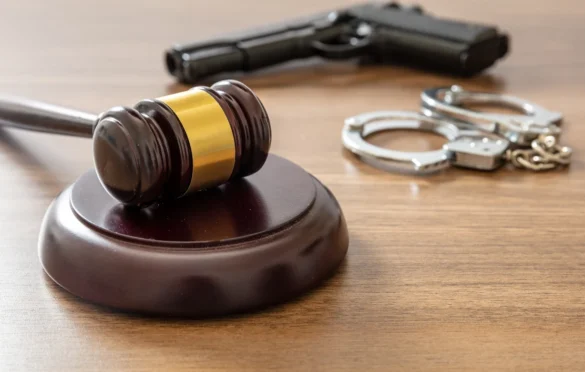Legal professionals specialize in various fields, with two of the most distinct branches being criminal and civil law. While both criminal lawyers and civil lawyers advocate for their clients in legal disputes, their roles, responsibilities, and the nature of the cases they handle differ significantly. Understanding these differences is essential for anyone seeking legal representation or considering a career in law.
1. The Fundamental Difference: Criminal Law vs. Civil Law
Criminal law and civil law serve different purposes within the legal system.
- Criminal law deals with offenses against the state or society, such as theft, assault, fraud, or homicide. When an individual is accused of a crime, the government—through a prosecutor—brings charges against the defendant, who may face penalties such as fines, imprisonment, or probation.
- Civil law focuses on disputes between individuals, businesses, or organizations, including contract disputes, property claims, and personal injury cases. These cases typically seek compensation rather than criminal penalties.
While criminal cases involve the government prosecuting an accused party, civil cases are initiated by individuals or entities seeking legal remedies for grievances.
2. Roles and Responsibilities of a Criminal Lawyer
A criminal lawyer defends individuals or entities charged with crimes. Their primary responsibilities include:
- Defending the accused – A criminal lawyer represents their client at all stages of a criminal case, from arrest to trial and appeal.
- Investigating the charges – This includes reviewing evidence, questioning witnesses, and identifying weaknesses in the prosecution’s case.
- Negotiating plea deals – In some cases, a lawyer may work with prosecutors to reduce charges or secure a lesser sentence for their client.
- Representing clients in court – If a case goes to trial, a criminal lawyer argues before a judge or jury, cross-examines witnesses, and presents a strong defense.
Criminal lawyers must have a deep understanding of criminal statutes, procedural rules, and constitutional protections, as the stakes are often high, involving potential loss of freedom or significant fines.
3. Roles and Responsibilities of a Civil Lawyer
A civil lawyer focuses on legal disputes between parties and seeks remedies such as financial compensation or specific performance. Their responsibilities include:
- Handling lawsuits – Civil lawyers file legal complaints, respond to claims, and manage all court proceedings related to civil disputes.
- Drafting legal documents – They prepare contracts, settlement agreements, wills, and other documents that help prevent or resolve disputes.
- Negotiating settlements – Many civil cases are resolved through negotiation, where lawyers work to reach a fair agreement without going to trial.
- Representing clients in trials – If a settlement cannot be reached, civil lawyers argue cases in court before a judge or jury.
Unlike criminal lawyers, civil lawyers focus on legal remedies rather than punishment, and their clients generally do not face incarceration.
4. Burden of Proof: The Legal Standard
One of the most significant differences between criminal and civil cases is the burden of proof required to establish liability or guilt.
- Criminal cases – The prosecution must prove the defendant’s guilt beyond a reasonable doubt. This is the highest standard in the legal system, as criminal convictions carry severe consequences.
- Civil cases – The plaintiff must prove their case based on a preponderance of the evidence, meaning it is more likely than not that the defendant is liable. This lower standard makes civil cases easier to win compared to criminal cases.
A person can face both criminal and civil liability for the same act. For example, someone accused of assault may be prosecuted in criminal court and sued for damages in civil court.
5. Types of Cases Handled
The nature of the cases handled by criminal and civil lawyers varies widely.
Criminal Lawyers Handle:
- Violent crimes (homicide, assault, robbery)
- Drug offenses (possession, trafficking, distribution)
- White-collar crimes (fraud, embezzlement, insider trading)
- Property crimes (burglary, arson, theft)
- Sex crimes (sexual assault, harassment, exploitation)
- DUI and traffic offenses
Civil Lawyers Handle:
- Personal injury claims (car accidents, medical malpractice, workplace injuries)
- Contract disputes (business agreements, service contracts, real estate transactions)
- Family law cases (divorce, child custody, spousal support)
- Employment disputes (wrongful termination, discrimination, harassment)
- Property disputes (landlord-tenant issues, boundary disagreements)
- Defamation lawsuits (libel, slander)
While some cases may overlap—such as fraud, which can have both criminal and civil consequences—the approach and legal strategies differ.
6. Penalties and Legal Consequences
The outcomes of criminal and civil cases also differ significantly.
- Criminal cases – A guilty verdict may result in imprisonment, fines, probation, or community service. Some offenses carry life sentences or even capital punishment in certain jurisdictions.
- Civil cases – The losing party typically pays monetary damages, complies with court orders, or takes corrective action. There are no prison sentences in civil litigation.
Even if a defendant is acquitted in a criminal case, they can still face liability in a civil case. For example, a person found not guilty of assault in criminal court may still be ordered to pay damages in a related civil lawsuit.
7. Court Procedures and Trial Process
The procedural differences between criminal and civil cases affect how lawyers prepare and present their arguments.
- Criminal cases involve a structured process, including arrest, arraignment, preliminary hearings, trial, and sentencing. Defendants have rights such as legal representation, protection against self-incrimination, and the right to a jury trial.
- Civil cases follow a less rigid structure, starting with the filing of a lawsuit, discovery (exchange of evidence), negotiations, and trial if a settlement is not reached. Many civil cases are resolved outside of court.
The timeline for civil cases can be lengthy, as disputes often go through multiple rounds of negotiation and litigation before reaching a resolution.
8. Skills and Expertise Required
Both criminal and civil lawyers require extensive legal knowledge and strong advocacy skills, but their expertise differs.
- Criminal lawyers must be adept at handling high-pressure situations, cross-examining witnesses, and crafting strong defense strategies. Their work often requires rapid decision-making and negotiation with prosecutors.
- Civil lawyers need excellent research, contract drafting, and negotiation skills. They focus on presenting compelling legal arguments, interpreting statutes, and ensuring favorable settlements for clients.
Many lawyers specialize in one field, although some may practice both criminal and civil law in different capacities.
Choosing the Right Lawyer for Your Case
Selecting the right legal representation depends on the nature of the case. Those facing criminal charges should seek an experienced criminal lawyer who understands defense strategies and courtroom procedures. Individuals or businesses dealing with disputes, contracts, or injuries should consult a civil lawyer who can navigate negotiations and litigation effectively.
While both legal professionals play vital roles in the justice system, their expertise is tailored to specific legal matters. Understanding these differences ensures that individuals and businesses make informed decisions when seeking legal counsel.







